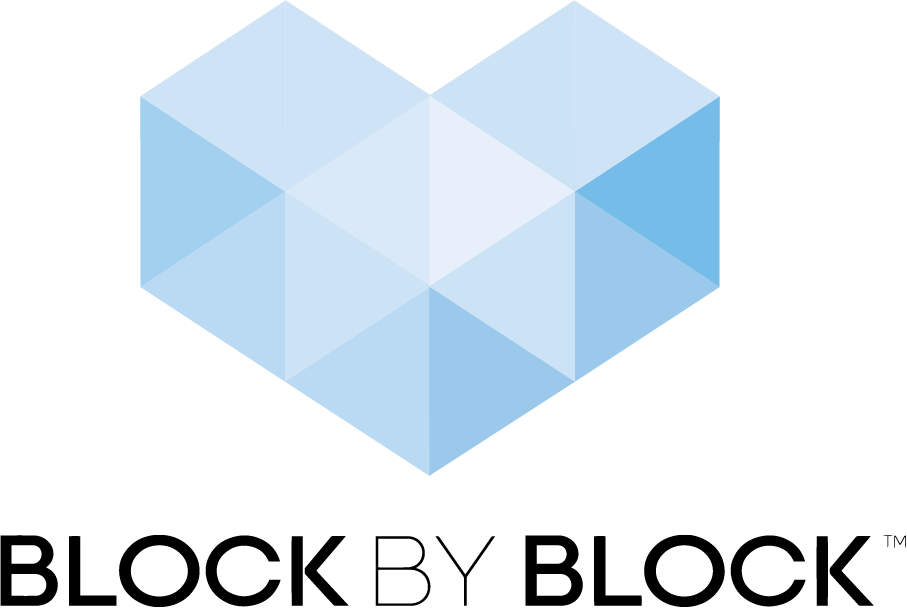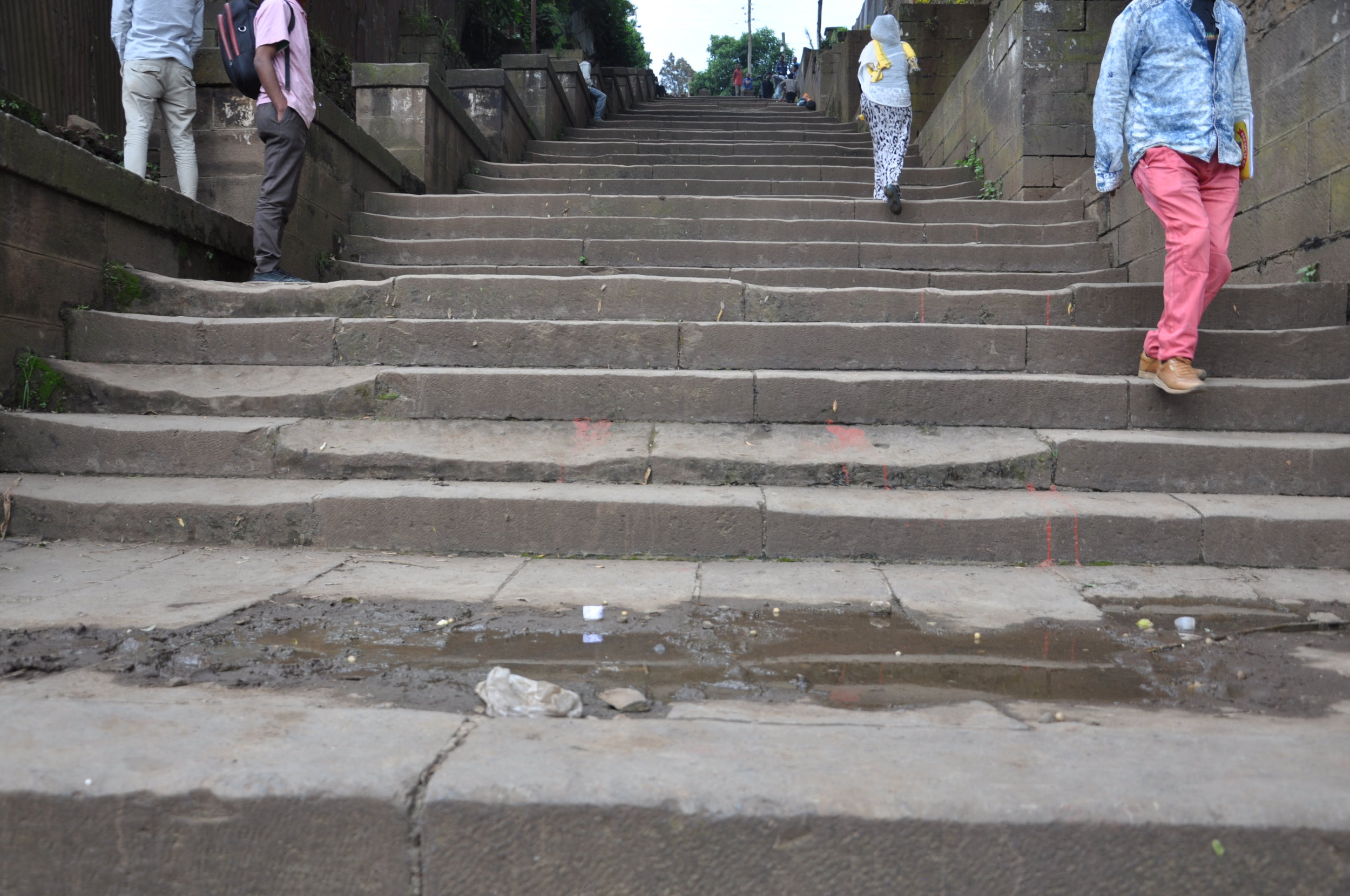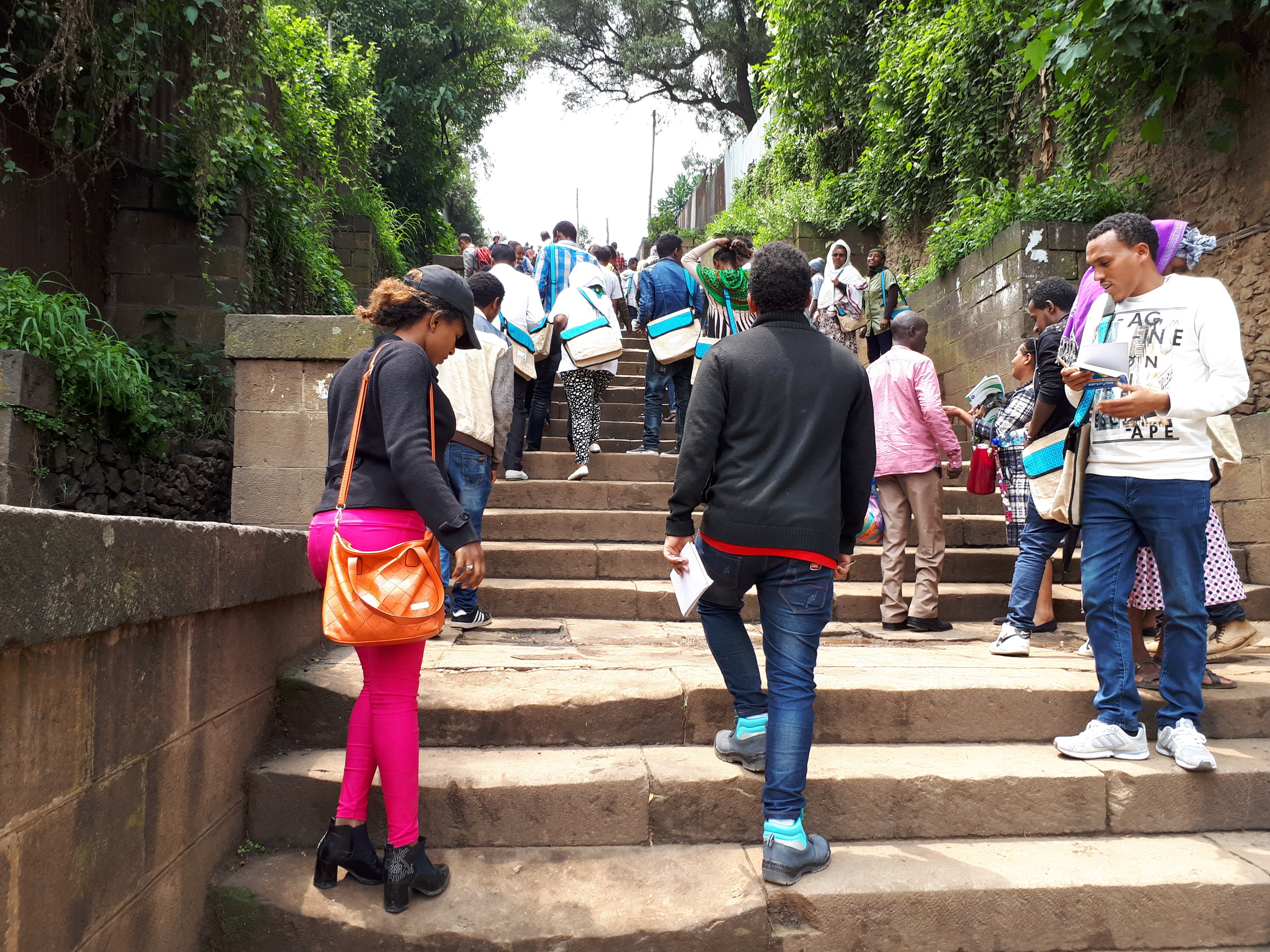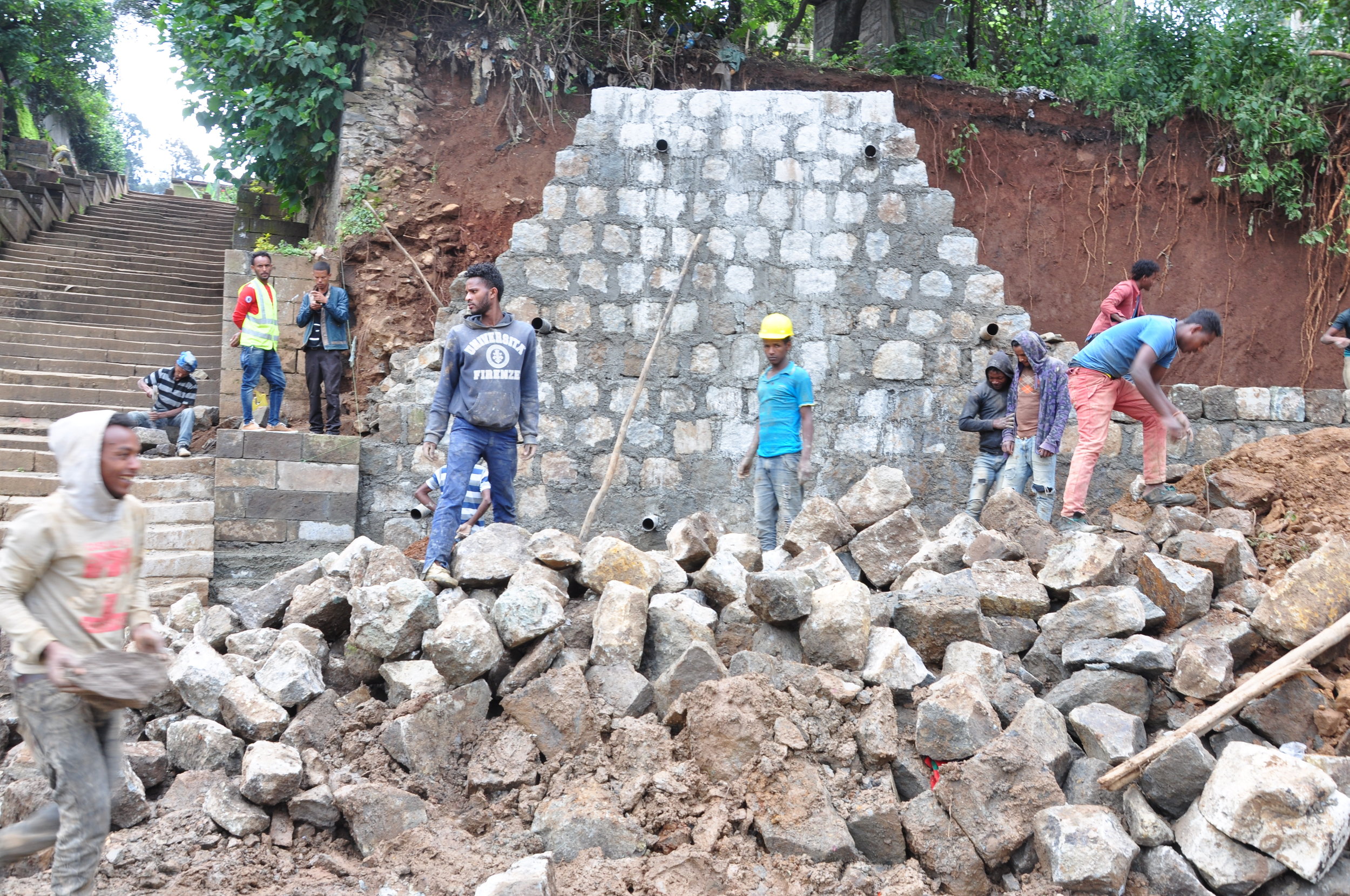Building Resilient Cities
Building Resilient Cities
Cities around the world are facing serious challenges from climate change. They need to adapt, and adapt quickly. We helped residents of Addis Ababa renovate crucial waterfront infrastructure and create a sustainable area for all to enjoy.
Building an Accessible, Sustainable Waterfront in Addis Ababa
Addis Ababa, Ethiopia
Project type: Public space assessment, waterfront park
Collaborators: UN-Habitat, Addis Ababa City Administration Beautification, Parks and Cemetery Development and Administration Authority; ICLEI Cities Biodiversity Center; Addis Ababa Rivers and Riversides Development Office
Region: Africa
Tags: accessibility, children and youth, climate change & environmental sustainability, empowering women and girls, land ownership rights, policy change, public safety and security, public space assessment, social inclusion and human rights
Residents of Addis Ababa, Ethiopia, used Minecraft to help shape the renovation of crucial waterfront infrastructure and protect public spaces for public use. Credit: UN-Habitat
Background
In 2017, UN-Habitat selected the capital of Ethiopia, Addis Ababa, to perform a citywide assessment of public spaces. The organization partnered with the Addis Ababa City Administration Beautification, Parks and Cemetery Development and Administration Authority to complete two assessments of all districts, called woredas, through 2018.
The assessment identified 2,040 public spaces in the city. However, some areas lacked features to serve the public, such as a hilltop school for the blind accessed by an aged, uneven staircase. The assessment also considered the safety perception of certain areas and found that nearly 20% of public spaces were perceived as “not safe.” Given the priorities of improving accessibility and safety (especially for women and girls), the city became a clear choice for site selection.
UN-Habitat and partners then set out to conduct an analysis of urban legislation, by-laws, and plans in Addis Ababa. By understanding the layout of the city, the team aims to create a city-wide public space strategy and action plan. This will protect recreational areas for the local population and procure title deeds for public spaces to protect them from illegal encroachment.
Building an Accessible, Sustainable Waterfront, Block by Block
The workshops aimed to include a diverse range of local residents. Between July and August 2017, 72 participants attended two Block by Block workshops focused on the Ras Mekonnen-Seba Dereja area. Locals walked around the selected site, noting the decaying staircase and seeing potential for environmental renovation along the waterfront. Nearly 60% of the participants had never used a computer before the workshop.
A young woman shares her design proposal for the site. Credit: UN-Habitat
“This kind of workshop helps the community participate in a sustainable environmental situation. The people involved can get more information on how they can keep their environment clean, clear, and comfortable for their lives.”
“Instead of being a corporate draftsperson, I get to work directly with the community to understand their needs and transform them into meaningful drawings. This has transformed my career and changed my perspective as an architect, especially in managing public and social needs against environment and design.”
Progress
Work around Ras-Mekonnen has progressed significantly. Construction has begun to transform the public space with structurally sound walls, repaved stairs, and a newly leveled open area planned to be closed to motor vehicles on weekends. This revitalized space allows for pedestrians to wander, kids to run around, and sports teams to play.
“Public space is everything. We have to have more public space in the city. Addis Ababa is doing a lot, and we are seeing a positive result from our engagement with the city administration.”








